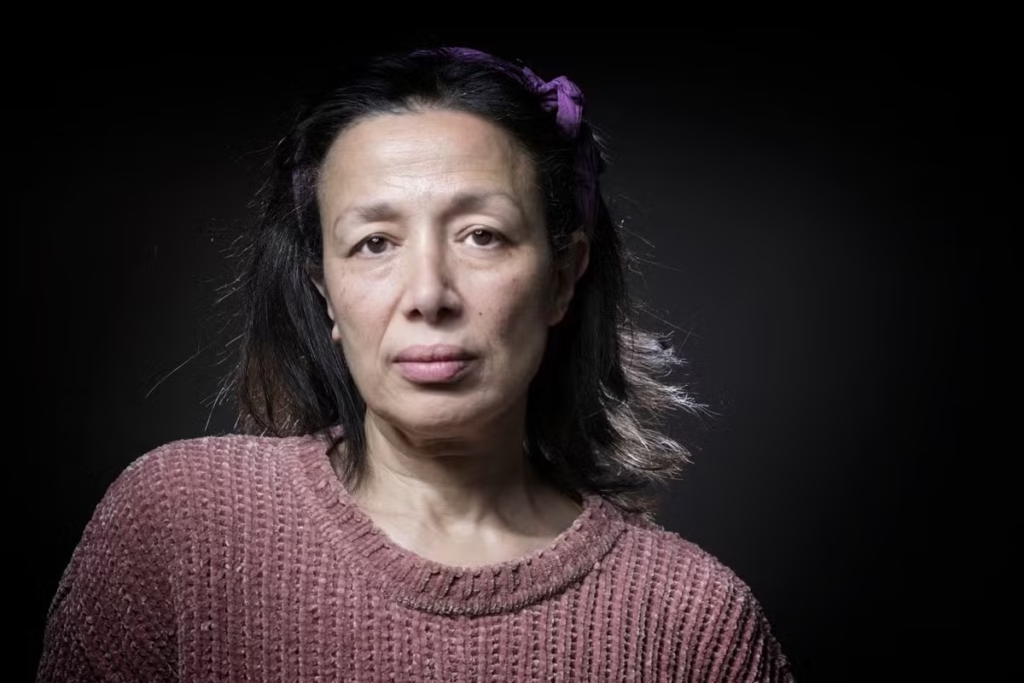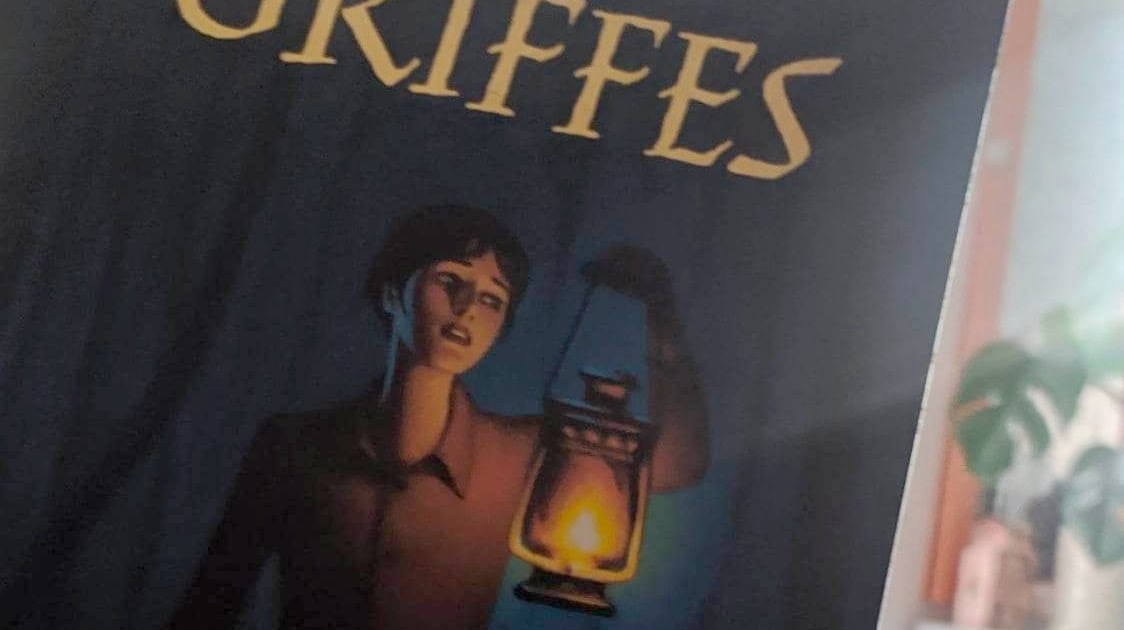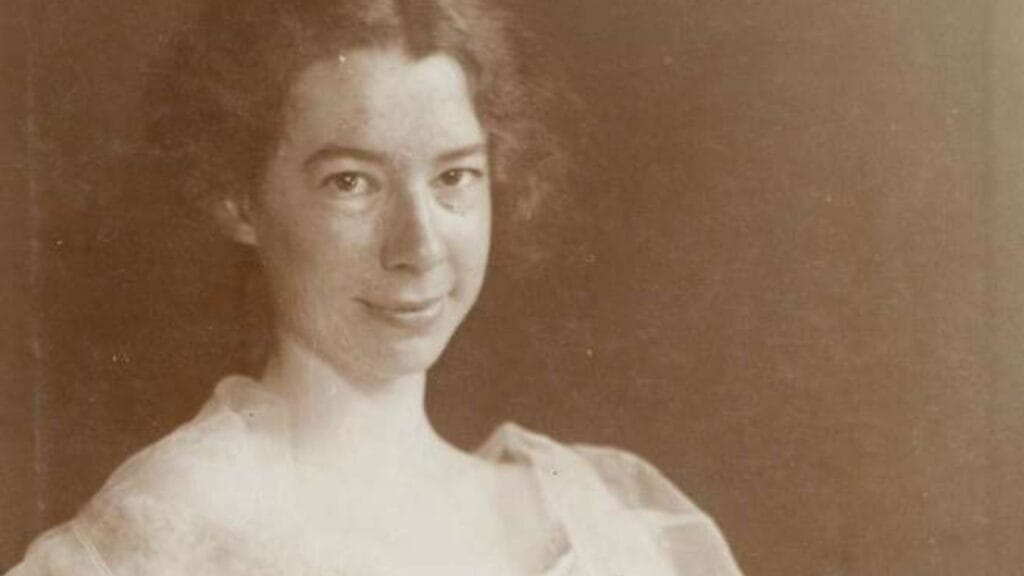Malika Ferdjoukh’s GRIFFES emerges as a unique and haunting tapestry of narrative brilliance. Her deft interweaving of psychological depth, lyrical prose, and suspenseful storytelling crafts a novel that is as gripping as it is profound. It beckons the reader to confront the hidden recesses of human nature while offering a narrative both tender and terrifying. In GRIFFES, Ferdjoukh gives us not just a story, but an experience that lingers long after the final page.
A Story Clad in Shadows
At its core, GRIFFES tells the tale of Séraphin, a boy whose ordinary life is irrevocably altered by a single, traumatic event. A murder, shrouded in mystery and dripping with the macabre, sets the stage for an exploration of guilt, fear, and the fragile veneer of normalcy. Ferdjoukh’s narrative unfurls like a nocturnal flower—beautiful, elusive, and tinged with danger. The story pulses with a dark rhythm, each beat a reminder of the lurking claws (griffes) that threaten to tear apart Séraphin’s world.
What makes GRIFFES particularly compelling is its deliberate ambiguity. Ferdjoukh eschews the traditional detective narrative where answers are neatly packaged and handed to the reader. Instead, she invites us into the labyrinth of Séraphin’s psyche, where memories blur, emotions surge, and the truth becomes a shifting mirage. This narrative strategy transforms the novel into an intimate psychological portrait as much as it is a thrilling mystery.
The Poetics of Fear
Ferdjoukh’s prose in GRIFFES is nothing short of mesmerizing. Her sentences, laced with poetic precision, evoke a visceral response. Fear, in her hands, becomes not just an emotion but a tangible presence—a shadow that breathes, a whisper that echoes. Consider her description of a fleeting moment of terror:
“The air was thick, not with the scent of rain or soil, but with the metallic tang of something unspoken. It clung to him, invisible claws scraping against the edges of his mind.”
Such passages are emblematic of Ferdjoukh’s ability to distill complex emotions into vivid imagery. Her words seep into the reader’s consciousness, evoking a sense of unease that mirrors Séraphin’s own.
Yet, Ferdjoukh’s prose is not confined to the macabre. She weaves moments of poignant beauty, offering the reader a respite from the novel’s darker currents. The contrast between light and shadow—between moments of hope and despair—infuses the narrative with a dynamic tension that keeps the reader enthralled.

Characters as Mirrors
The characters in GRIFFES are exquisitely drawn, their complexities reflecting the novel’s themes of duality and deception. Séraphin, the protagonist, is both a victim and a suspect, his innocence and guilt intertwining in a dance as intricate as the narrative itself. Through his eyes, we witness the fragility of identity and the ways in which trauma can distort perception.
The supporting characters are no less compelling. Each one serves as a mirror, reflecting facets of Séraphin’s own psyche. There is the enigmatic Camille, whose presence is as soothing as it is unsettling; the stern yet compassionate grandmother who anchors Séraphin in moments of chaos; and the inscrutable figure of the murderer, whose identity remains a tantalizing enigma. Ferdjoukh’s mastery lies in her ability to make each character’s motivations and emotions feel authentic, even as she maintains the novel’s air of mystery.
Themes Woven in Darkness
GRIFFES is a novel steeped in themes that resonate on both a personal and universal level. At its heart, it is a meditation on the nature of fear—how it shapes us, paralyzes us, and sometimes propels us into action. Fear, Ferdjoukh suggests, is not merely an external force but an internal battle, one that defines the boundaries of our courage and vulnerability.
Another central theme is the notion of innocence and its loss. Through Séraphin’s journey, Ferdjoukh explores the delicate balance between naïveté and awareness, and how the shattering of innocence can be both a tragedy and a rite of passage. This theme is underscored by the recurring motif of griffes, symbolic not only of physical danger but also of the emotional scars that shape us.
Ferdjoukh also delves into the idea of truth—its elusiveness, its subjectivity, and its power. In GRIFFES, truth is not a static entity but a shifting construct, influenced by perspective and memory. This thematic complexity elevates the novel from a mere whodunit to a profound exploration of the human condition.
A Sensory Experience
One of Ferdjoukh’s greatest strengths lies in her ability to create a richly immersive atmosphere. Her descriptions of the novel’s setting—a sleepy village cloaked in mist and mystery—are imbued with a sensory vividness that draws the reader in. The creak of floorboards, the rustle of leaves, the flicker of candlelight—each detail is rendered with precision, creating a world that feels both familiar and otherworldly.
This sensory richness extends to the novel’s emotional landscape. Ferdjoukh captures the nuances of human emotion with an unerring eye, from the raw intensity of grief to the fragile warmth of love. It is this emotional authenticity that makes GRIFFES such a compelling read, as the reader becomes not just an observer but a participant in Séraphin’s journey.
A Testament to Ferdjoukh’s Craft

GRIFFES is a testament to Malika Ferdjoukh’s literary prowess. Her ability to balance suspense with lyricism, complexity with clarity, is nothing short of masterful. The novel’s intricate structure, with its layers of mystery and meaning, invites multiple readings, each revealing new insights.
Ferdjoukh’s work also stands out for its refusal to conform to genre conventions. While it contains elements of a thriller, a coming-of-age story, and a psychological drama, it defies easy categorization. This hybridity is a hallmark of Ferdjoukh’s storytelling, and it is what makes GRIFFES such a distinctive and memorable work.
A Claw Mark on the Soul
In GRIFFES, Malika Ferdjoukh has crafted a novel that is as enigmatic as it is evocative. It is a story that claws its way into the reader’s mind and heart, leaving an indelible mark. Through her poetic prose, complex characters, and profound themes, Ferdjoukh invites us to confront the shadows within ourselves and to find beauty in the darkness.
For those willing to lose themselves in its pages, GRIFFES offers a journey that is as rewarding as it is unsettling. It is a testament to the power of literature to illuminate the human soul, even as it delves into its darkest corners. Ferdjoukh’s novel is not just a book—it is an experience, one that lingers like the whisper of a shadow, long after the final page is turned.









